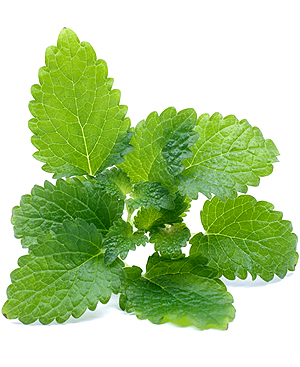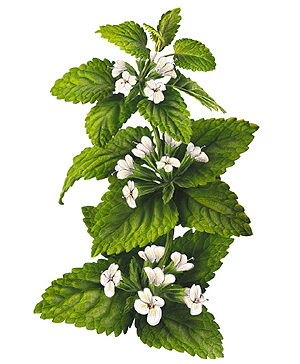No products
Lemon balm stem - 50g
(Herba Melissae officinalis)
Lemon balm (Melissa officinalis) calming agent digestive tract (stomach neurosis) and heart (cardiac neurosis, heart palpitations, etc.). Soothes coughs, increases the secretion of bile, prevents the formation of gases, slows heart rate, lowers blood pressure slightly...
![]()
Content |   |
Binomial nameMelissa officinalis Commonly called (often known as)Balm, Common balm or Balm mint StorageStore in a dry place at a temperature up to 25°C |
Description of herb
Who doesn't know the wonderful warm lemon scent of Lemon balm, which calms the mind and pleases every heart. It has a positive effect on melancholy, memory impairment and general lability.
This perennial plant with white flowers grows to a height of 70-150 cm and its aromatic leaves smell like lemon. It comes from the eastern Mediterranean and Asia Minor. It is suitable for protected and sunny locations with permeable humus soil. The whole stem is collected before the flower, which needs to be dried quickly, but not in the sun.
Healing effects
Lemon balm (Melissa officinalis) acts mainly as a sedative, mostly in the digestive tract (gastric neurosis) and heart (cardiac neurosis, palpitations, etc.), soothes bouts of cough, increases bile secretion, prevents the formation of gases, slows the heartbeat, slightly reduces blood pressure. Lemon balm tea reduces stress, soothes, relaxes and makes sleep more pleasant. Lemon balm has antiviral effects, especially against herpesviruses - cold sores.
It also strengthens the central nervous system, has a sedative effect, relieves cramps and muscle tension, can be used for milder forms of neurasthenia, depression, migraine, allergies of nervous origin (eg stress-induced asthma), helps with abdominal pain, bloating, infectious diarrheal diseases, painful menstruation and menopause.
Externally, Lemongrass can be used for rheumatic swellings, bruises and blood bruises, and in breastfeeding women at the risk of hardening of the milk in the breast.
Active substances
- essential oils - citral, citronellol, citronellol, geraniol, linalol - 0.1%
- tannins - 4%
- hydroxytriterpene acids such as ursolic acid
- bitterness
- slime
- flavonoids
- mineral substances
Properties
Anti-bacterial, anti-oxidant, anti-convulsive, anti-viral, aromatic, anti-flatulence drug, brain stimulant, anti-inflammatory agent, regenerative, soothing, soothing (mild), tonic.
Recommended at
- anxiety
- chronic fatigue
- cold
- cold sores
- colic
- depression
- dizziness
- fever
- gastrointestinal problems
- headaches
- herpes virus
- hypertension
- hypothyroidism
- insomnia
- menstrual cramps
- nausea
- painful urination
- heartbeat
- shingles
- upset stomach
- viral infections
- injury
- sleep disorders
Preparation and dosing
TEA
Preparation: 1 teaspoon dried herbs per cup of water, do not boil, just pour boiling water and leave covered for 15 minutes to stand.
Dosing: Drink 2-3 cups a day
CARMELITE DROPS (Aqua melissa composita)
Preparation: These drops became famous at the beginning of the 17th century, when they were made from lemon balm by monks in a barefoot Carmelite monastery. Later, they were commonly produced in pharmacies. Their composition: 50g of lemon balm leaves, 20g of lemon peel, 30g of Coriander seeds, 10g of cinnamon peel, 10g of grated nutmeg. Slice gently, mix and leave to infuse for 7 days in 100g of pure alcohol mixed with 200g of water. After straining, store in smaller, tightly closed bottles. The drops have been shown to be effective in melancholy, migraine, dizziness, stomach problems and cramps, and menstruation.
Dosing: 10-15 drops 3 times a day.
Side effects
No side effects are known. Lemon balm can be used by pregnant and breastfeeding women.
REMEMBER: Tell all your health care providers about any complementary health practices you use. Give them a full picture of what you do to manage your health. This will help ensure coordinated and safe care.

